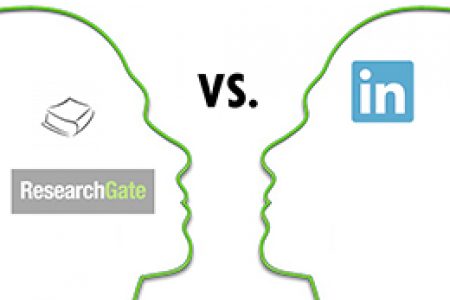Tips and Tricks with Joanne van der Leun
Today's Tips and Tricks will focus on LinkedIn and my guest this week is Professor Joanne van der Leun. When I was looking for a guest to interview about LinkedIn, her profile stood out to me because it's complete and utilises all of the options on offer.
Today's Tips and Tricks will focus on LinkedIn and my guest this week is Professor Joanne van der Leun. She's a criminologist focussing on the field of urban issues of crime and migration. In addition to her research and teaching responsibilities, she's also the Academic Director of the Institute for Criminal Law and Criminology. When I was looking for a guest to interview about LinkedIn, Professor Van der Leun's profile stood out to me because it's very complete and utilises all of the options LinkedIn offers to academics. Here is what she has to say about LinkedIn and what makes it a useful tool for her.
Why did you choose to setup a LinkedIn-page?
I started with LinkedIn because I was looking for a way to keep in touch with the policy field as criminologist and to reach a broader public with some of my publications and activities. Nowadays, I primarily use my profile with over 1,000 contacts to keep track of colleagues, people I meet at conferences and former students. Without an efficient networking tool this would be impossible.
In addition to LinkedIn do you also keep a profile on one of its academic counterparts, such as Academia.edu or ResearchGate?
I do have a Google Scholar profile ( that’s why I usually do not post my publications anymore on LinkedIn) and a ResearchGate profile. Now colleagues are telling me I should go to Academia.edu as well, so that is on my list. But in my experience so far, LinkedIn is the one that allows best for networking on a broader scale.
What value does it add for you?
LinkedIn is nice if you are naturally curious. But it adds other value as well. If I want to help a student find a research internship, my LinkedIn network is indispensable. Moreover, having insight in how careers of alumni develop, is helpful information when adjusting or developing our curriculum. In addition, keeping in touch with colleagues at other universities or abroad is much easier if you follow their updates and every now and then react to them. I have also noticed that parties outside academia contact me more often for questions and policy-related activities since I use LinkedIn. And last but not least, my network directs me to professional publications and blogs in my fields of interest, which is very useful in time of information overload.
How does LinkedIn work for you? Does keeping your profile up to date take up much of your time?
I typically use the iPad app to read and add updates a couple of times a week at the end of the evening. If I teach a course for a broader public or if I am engaged in organizing an event or post a blog, I often add a link. It does not take up much time and it might even save time ( no more looking for names and contact information).
Do you use any other forms of social media in your work, such as Twitter, Facebook or a blog?
I blog at Leiden Law Blog, which I enjoy a lot because it is also a way of reaching out to a wider audience. I am not a fan of Facebook, as I do not like the thin line between personal and professional use ( that’s probably a criminologist’s point of view) .
Any tips and tricks you’d like to share?
- LinkedIn groups are very helpful. By following discussions and debates you will also be directed to interesting reads outside academia. In particular if you are working in a field with direct connections to wider society (as my field is), I consider groups a must.
- Be selective when accepting connection requests, there must be a reason to have a person in your network.
- If the above does not work out well and you get annoyed by a person's updates, simply (and unobtrusively) hide them.





